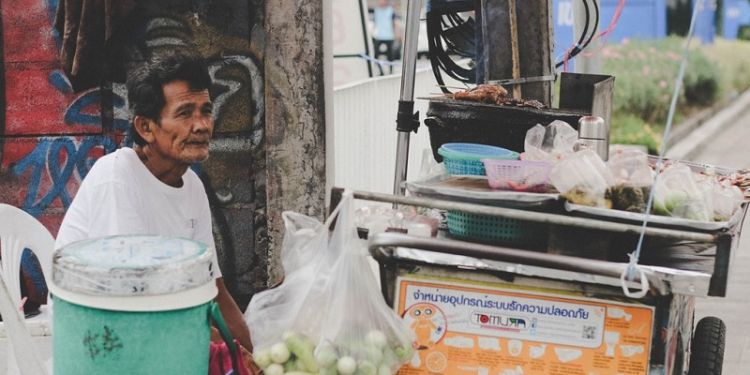MA by Research case studies
Daniel Whitehouse. Thesis: Discourses surrounding masculinity in Thailand

MA by Research (2012) Thesis title: 'Snakes Without Poison?': (Re)negotiating Hybrid Masculinities in Thailand
I received my scholarship in 2011, the year after I finished my BA at Leeds. If I had not received this scholarship it is very unlikely that I would not have pursed further education at that point. After exploring several avenues with my supervisors, I decided that I would explore the discourses surrounding masculinity in Thailand, as the current scholarship concerning men in Thailand is still relatively scarce. I performed the research in Nan and it was a period of massive personal development. This degree, unlike a taught master's, requires students to go to Thailand and lead their own research project, which teases out reserves of resourceful thinking and initiative that is rarely summoned before a PhD. In many ways it is a fine primer for adult life. Although, the process was tougher than I expected, I was eventually pleased with the resulting thesis- which is due to be published in the International Journal of Thai Studies later this year.
Since I handed in my final thesis, I have been lucky enough to experience many areas of work in Thailand. I interned at the UN office of Drugs and Crime, led corporate ESL workshops and now I am a regular co-host of a news discussion show that broadcasts at the weekends on Voice TV, as well as an education consultant for a company that arranges Thai students to study at boarding schools in England. I intend to return to study for a PhD in the near future, as I enjoy the creativity and passion that academic work requires.
In short, the scholarship provided me an opportunity to discover new things about Thailand, academia and myself and allowed me to make my own contribution- however modest- to Thai studies. In addition, it helps legitimise and empower the University of Leeds in their position as one of the few international research hubs for Thai studies. This, in turn, supports and promotes Thai studies as a serious scholarly subject, allowing it to step out of the shadows of Korean or Japanese studies, which enjoy far more funding opportunities. I hope that the scholarship will continue to fund a new generation of Thai studies scholars.

